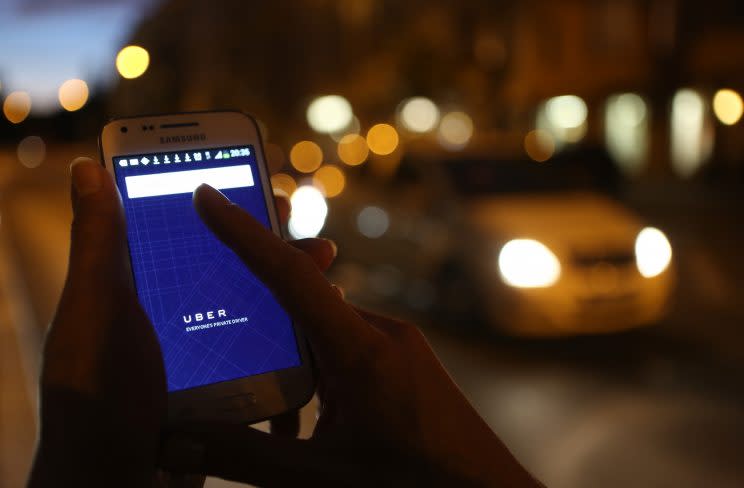Ride-share drivers 'discriminate' against African American passengers: study

A new working paper says that African American users of ridesharing apps are more likely to face longer wait times when attempting to hail a ride, or have drivers drop out before their pick-up occurs.
The report published by the National Bureau of Economic Research analyzed nearly 1,500 rides in Seattle and Boston, and found a “pattern of discrimination.”
In the West Coast tech hub, it showed up in the form of longer wait times for African American passengers to the tune of 16 to 28 per cent. In particular, black UberX users could expect to 29 to 35 per cent longer.
Meanwhile, in the Massachusetts capital, discrimination was found to be taking place as more frequent trip cancellations.
UberX passengers using “African American sounding names” faced a cancellation rate more than double their counterparts with “white-sounding names” (10.1 per cent to 4.9 per cent).
“There appears to be evidence that African American passengers receive worse service, compared to white riders, in TNC (transportation network companies) or ride-hailing based services such as Uber and Lyft,” wrote the authors in the report.
“This discrimination is not the result of any policy by ride-hailing providers, but rather the behaviour of individual TNC drivers.”
Furthermore, in Seattle, ride-acceptance times for African American males on Lyft were longer, as some drivers passed up requests. However, wait times were the same for whites and African American travellers.
In Boston, discrimination was particularly evident in the ride cancellation rate faced by UberX passengers with African American-sounding names.
They were more than twice as likely to have their rides cancelled than men with white-sounding names (11.2 per cent to 4.5 per cent.)
The cancellations also seemed to be concentrated in areas with a low population density, where men with black-sounding names saw their dropped-ride percentage rise to 15.7 per cent, more than triple that faced by white men.
The study used two different methods to look for discrimination among ride-share drivers.
In Seattle, research assistants from different racial backgrounds were asked to summon rides along predetermined routes.
While in Boston, research assistants requested riders use two different names: one “white sounding” and another that was a “distinctly black name,” including Aisha, Ebony, Hakim, Darnell, Keisha, Kareem and Rasheed. They were also asked to vigilantly watch for cancellations.
The second part of the methodology was employed after testing in Seattle between August and September 2015.
The researchers believed that an increased focus on cancellations could paint an even bigger picture of the discrimination, as Uber drivers do not receive any information about passengers until they accept a ride request.
So if drivers were discriminating they would do so by quickly cancelling a trip after they saw their passenger’s name. This is a technique that the researchers found was being advocated by some Uber drivers in online forums.
In contrast, Lyft drivers are provided with a photo of potential riders along with a trip request, meaning any discrimination would be difficult to record as it occurs before any interaction with a rider.
As expected, this resulted in the study finding “no effect” in terms of the cancellations for American American Lyft users.
“Based on these findings, we theorize that at least some drivers for both UberX and Lyft discriminate on the basis of the perceived race of the traveller,” write the authors.
“Because UberX drivers see a passenger’s name and photo only after accepting a trip, UberX drivers discriminate by cancelling after accepting the trip and seeing the passenger’s name whereas Lyft drivers simply choose not to accept a trip.”
The researchers added that this added step led to the increased wait times found with UberX.
However, the study did not find that black ride-share users faced increased wait times in Boston.
It suggested that this might be because the city has a denser network of drivers.
The study also found that discrimination was not limited to ride-share drivers.
In Seattle, research assistants were asked to attempt to hail taxis and record the number of unoccupied vehicles that passed them.
White research assistants had the first taxi they saw stop nearly 60 per cent of the time, compared to less than 20 per cent for their African American counterparts.
In fact, white research assistants never had more than four cabs pass them before one stopped, while black research assistants saw six or seven pass by them 20 per cent of the time.
There was also another form of discrimination that emerged from the study’s findings.
In Boston, the researchers found that female passengers were driven about five per cent farther than men.
They noted that some of these excessive fares occurred because drivers started the trip before picking up their passengers or ending it before dropping them off. Other women reported that “chatty” drivers drove “extremely long routes” which on occasion saw them pass the same intersection multiple times.
“The additional travel that female riders are exposed to appears to be a combination of profiteering and flirting to a captive audience,” the authors wrote.
To deter discrimination on the part of ride-share drivers, the authors suggest a number of measures, including: using unique passcodes instead of passenger names, using fixed fares between pickup and drop-off points to prevent extended rides for women, increasing disincentives for driver cancellations and periodic driver audits.
The authors also suggest that passengers might want to consider creating accounts with nicknames to “de-identify their race.”

 Yahoo Finance
Yahoo Finance 
